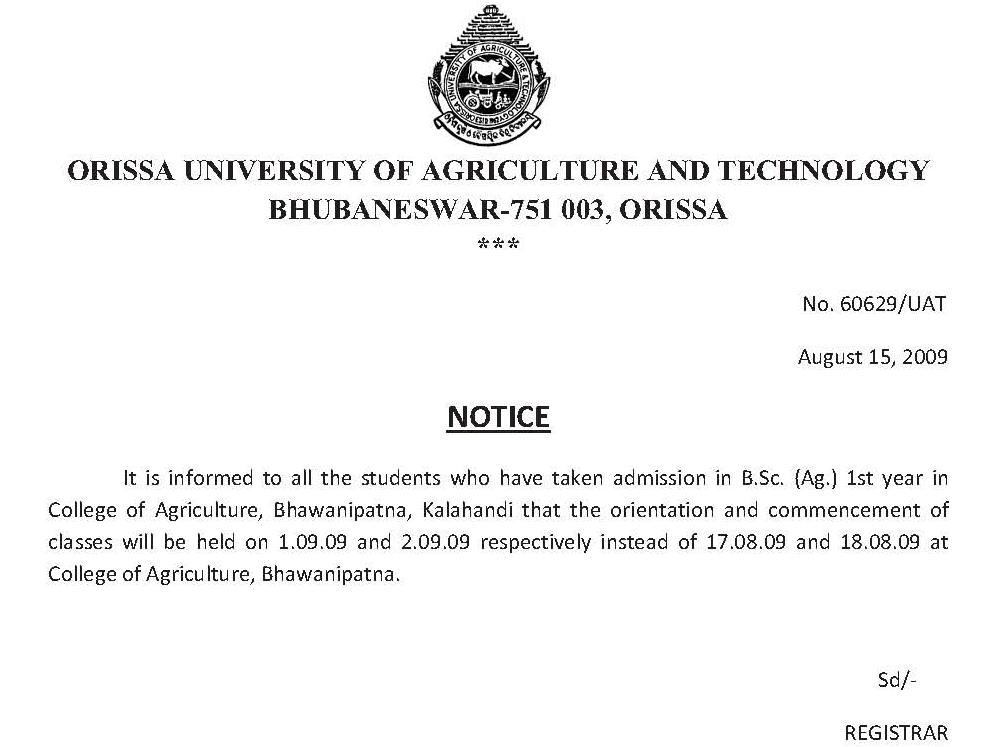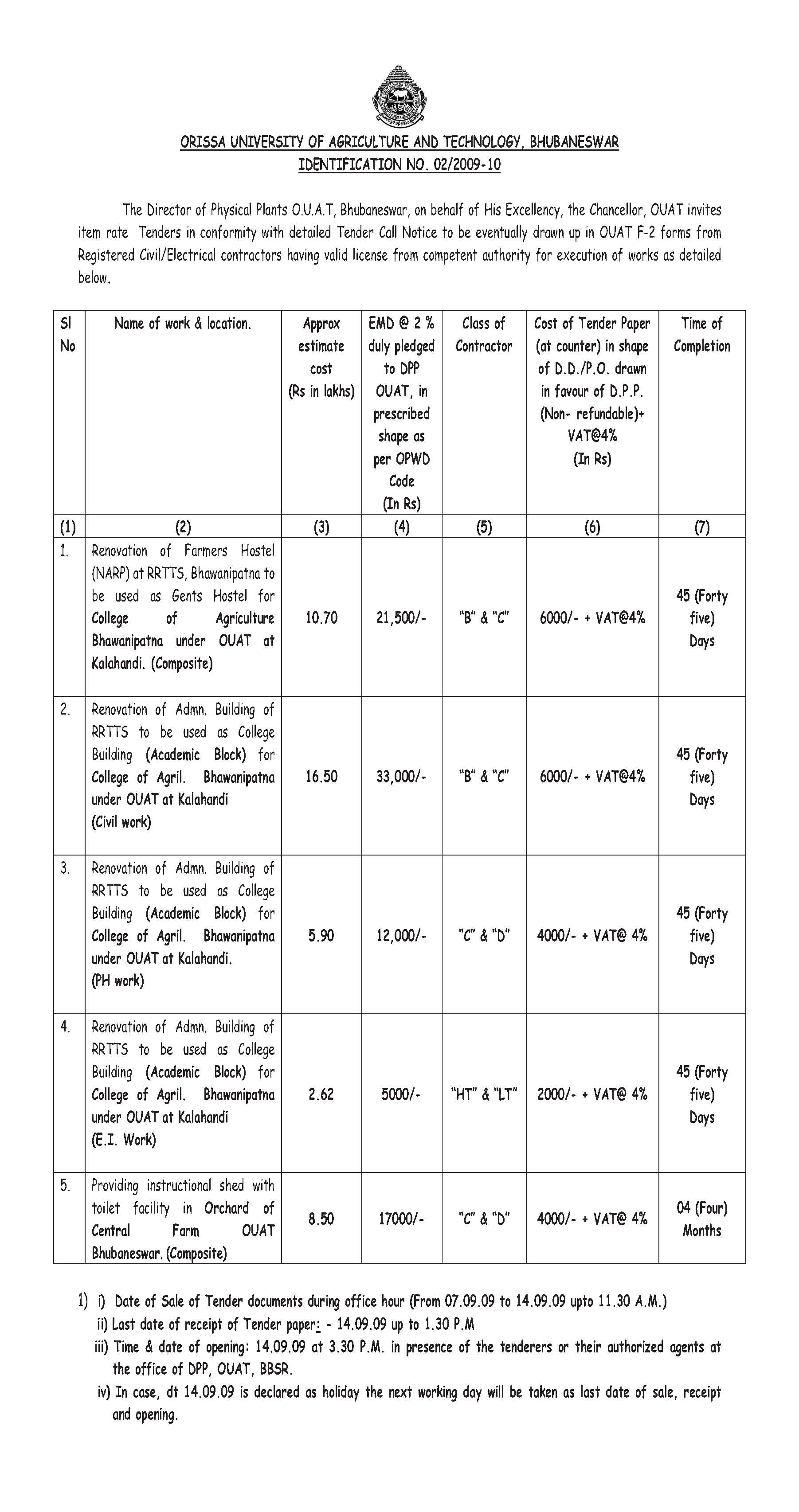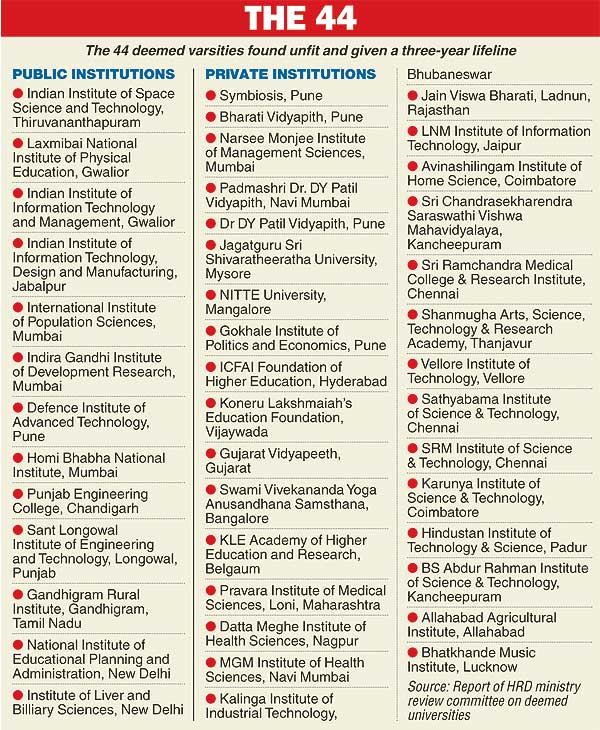Following is an excerpt from a report in Business Standard.
… An official confirmed the ministry met these institutes almost two weeks ago to discuss these plans.
Yale’s talks with the HRD ministry involve mentoring all 14 universities through its leadership programme. Since none of these universities have been built, the Ivy League university’s role is to act as consultant and conceptualiser,
“Minister Sibal has agreed to work with us on the new innovation universities for references and conceptualising. We will be developing leadership programmes for the deans and vice chancellors of these universities,” George Joseph, assistant secretary, Yale University, told Business Standard.
“We don’t plan to set up an India campus anytime soon … but we would like to mentor the new innovation universities just like the Indian Institutes of Technology were mentored when they were established,” he added.
Each “innovation university” is expected to focus on one area or problem of significance to India, such as urbanisation, environmental sustainability and public health.
MIT has expressed interest in mentoring one university that is focused on the energy sector. …
Meanwhile, Yale also plans to use part of the funds from its Yale India initiative for the leadership programme for these new universities. The initiative began in November 2008 and now has almost $75 million (Rs 338 crore).
March 22nd, 2010
Following is an excerpt from a report in Pioneer.
Prof. Amiya Kumar Pattanayak has been appointed as the new vice-chancellor of the Utkal University of Culture. …
Born in 1949, Prof Pattanayak started his academic journey in 1972. He holds a Ph.D in history and was professor in Berhampur University during 1994-2008. He was Registrar of Berhampur University, served as a warden, was also the Director of Distant Education Centre, Director of College Developmental Council and Director’s Women Studies Research Centre.
Prof Pattanayak has written six books, edited 12 books, has sixty-five research publications. 15 scholars have been awarded Ph.D under his guidance. Nine are continuing research under him at present. He has produced 37 M.Phil. scholars.
February 16th, 2010
Following is an excerpt from his speech transcript in Business Standard.
It is in this dreary world of higher education in India that we have shining examples, such as St Xavier’s College. It was founded by the Society of Jesus. Long before Shri Maulana Abul Kalam Azad, Dr S Radhakrishnan, Dr Zakir Hussain, Dr Humayun Kabir and my good friend Shri Kapil Sibal, there was an intrepid soul named Fr H Depelchin. Along with six Belgian Jesuits, he arrived in Kolkata and founded the St Xavier’s College.
The college has been in the service of the nation for 150 years. Not only in Kolkata, but in many other parts of India, the Society of Jesus has rendered yeoman service to the cause of education. Its 153 high schools, 38 university colleges, 14 technical institutes and five business administration institutes teach, at any given time, over 230,000 students belonging to every section of the society. St Xavier’s alone has over 4,000 students.
Like every Jesuit educational institution, St Xavier’s College has an admission policy that is biased in favour of the poor, especially the socially and financially marginalised, and I commend the college on its sense of social responsibility. We are beholden to the Jesuits for the unwavering dedication, the sense of duty, and the strict discipline they bring to their work and to the institutions founded by them.
I passed through a Jesuit institution and I fondly remember the great teachers: Fr Murphy, Fr Sequira, Fr Coyle, Fr Lawrence Sundaram, Fr Amascua and Fr Yedanapally. It surprises me even today how so many of them could leave such an indelible impression in a period of barely one year.
We are still debating the norms and values that must prevail in an institution of higher learning, and especially the place of the non-government sector in providing higher education. I recognise and support the role of the private sector in higher education, but I am absolutely clear in my mind that the private sector in higher education ought not to mean private business in higher education. As far as I am aware, no great university in the world was established for the purpose of profit. I believe that some activities in a society must stand outside the world of profit and higher education, in my view, ranks first amongst such activities.
For over 150 years, the Society of Jesus has done just that in Kolkata, in Chennai and in many other towns and cities. For that and for many other blessings that they brought to India, we thank them and we salute them.
(Excerpts from Home Minister P Chidambaram‘s valedictory address at St Xavier’s College (Autonomous) in Kolkata on January 17, 2010)
The above is very relevant to the proposal of a Xavier University in Odisha. The Odisha government should expedite that proposal.
February 7th, 2010
Following are excerpts from a report in Times of India.
In its revised concept note on the setting up of 14 Innovation Universities, the HRD ministry has proposed two types of reservation policy for these institutions, some of which will be directly funded by the government while a few will be in the PPP mode.
Within PPP, it has been proposed that world class universities from abroad might also be invited to set up similar such institutes here. The government will be a partner in the establishment and research programme while the cost of teaching will be funded by the promoter university.
The Innovation Universities fully-funded by the government will follow the existing reservation policy in admission for SCs/STs/OBCs. The Central Educational Institutions (Reservation in Admission) Act, 2006, will be applicable in their case.
However, in case of Innovation Universities in PPP mode, the HRD note says affirmative action cannot be wished away. Therefore, it has been suggested to weight the test scores with a measure for the socio-economic background of the candidates. …
There has also been a slight modification about auditing of accounts. While the money spent by a university or faculty on research or teaching will be kept out of the purview of Comptroller and Auditor General, the expenditure on administration or non-academic areas will be audited by CAG.
Two modes of establishment of Innovation Universities have also been decided. While those fully-funded by the government will come up through an Act of Parliament, the ones through PPP will be established through a Memorandum of Understanding. Financial, academic and research credentials of the private promoter will be the main criterion in selecting them to collaborate with the government.
The Innovation Universities will also have the freedom to decide on their own admission policy.
The 14 Innovation Universities will come up in Amritsar, Greater Noida, Jaipur, Patna, Guwahati, Kolkata, Bhopal, Kochi, Gandhinagar, Coimbatore, Mysore, Pune, Vishakhapatnam, Bhubaneswar.
January 30th, 2010
Update on Jan 25 2010: As per this news item:
The Supreme Court Monday restrained the central government from derecognising 44 deemed universities for their questionable academic performance or poor infrastructure and assured tens of thousands of their students of a fair hearing.
A bench of Justices Dalveer Bhandari and A.K. Patnaik ordered status quo for various deemed universities on several lawsuits by the varsities challenging the government’s move to derecognise them.
‘Nothing is going to happen to your institutions and your students till we dispose the matter,’ observed Justice Bhandari while also issuing notices to all 44 universities separately to have their say in the matter.
The case was adjourned to March 9.
The list is given in this TOI news item. Thanks to the people who sent the pointer.
January 19th, 2010
Following is an excerpt from a PTI report on this.
Sibal said the government wants to set up 14 innovation universities on various themes and these institutions will earn revenue from various areas, including research.
Brown, however, differed from Sibal on the proposed economic model for the Innovation Universities and said that major funding will have to come from tuition fee.
"This is not going to work. In our university, 50 percent of revenue comes from tuition fee despite the university having a billion dollar of Endowment fund. The universities here will have to depend on tuition fee," he said.
Sibal retorted back, saying that the investment involved in setting a university in India will be less than the cost in the US.
 He said institutes should not be charge exorbitantly on students. They can generate revenue from other sources.
He said institutes should not be charge exorbitantly on students. They can generate revenue from other sources.
The government will set up a Higher Education Finance Corporation to provide funding to poor students for study. The students can pay back the money over a period of time, he said. The HRD Ministry has prepared a bill to set up the corporation.
The loans will be made available for students pursuing professional courses, he said.
I am a bit confused about the innovation universities being on various themes. I thought they were supposed to be multi-dsiciplinary universities aiming to become like Oxford, Cambridge and Berkely.
January 10th, 2010
Following is from a report in Business Standard.
Ivy League colleges – Yale, Harvard, Princeton and the Massachusetts Institute of Technology – have approached the ministry of human resources development to collaborate in the proposed Innovation Universities across the country, official sources said.
These universities are a part of the ministry’s “brain gain” policy to attract talent from all over the world. Human Resources Development Minister Kapil Sibal had last August announced that 14 Innovation Universities will be set up in the country under the 11th Five-year Plan (2007-12).
During his visit to the US in October, Sibal had met senior functionaries of three top universities – Harvard, Yale and MIT – and had discussed the prospects of them setting up Innovation Universities in India in partnership and collaboration with Indian institutions.
Sam Pitroda, the well-known technocrat and the head of the National Knowledge Commission, is learnt to be drafting the details for establishing the Innovation Universities. “Pitroda will soon meet Prime Minister Manmohan Singh and discuss the matter. An announcement on the details could come up during the Republic Day ceremonies,” said a source close to the development.
The ministry is also looking at public-private partnerships for establishing some of the Innovation Universities. This means that these universities would be autonomous, and outside the purview of the University Grants Commission or the All India Council for Technical Education.
January 3rd, 2010
I knew about classes starting in the college of engineering in Bhawanipatna but somehow I missed this news earlier. The following news item in Dharitri provided the tip.

Looking in the web I found the following two documents in regards to College of Agriculture, Bhawanipatna.


December 30th, 2009
Following is from Samaja.

This creates an interesting situation. On one hand Rourkela is really the right location for the ESIC Medical college; but on the other hand changing of an already announced location can be dangerous in that it opens up other attempts to change other locations. No announcement of a location will be safe as people from other aspiring areas will keep trying to change it and some of that may result in instability and chaos.
While ESIC medical college case is a very very special case, and we tried to make that case, it seems to be very difficult to make people understand that. Even we have failed in that in these pages.
That may be one of the reasons Orissa government is being stubborn on the ESIC Medical college case.
As the Telangana case illustrates how one decision can have snowball effect on the rest of the country, unless the ESIC case is carefully handled (by all sides) it can create chaos across the state.
December 27th, 2009
Following is an excerpt from a report in Times of India.
Sibal, who was speaking at a Singapore Symposium here, said both India and Singapore will cooperate in setting up 14 innovation universities in India.
India needs modern universities to bridge the huge skill shortage gap and Singapore can be the best country to partner with in this area. Infrastructure, education, and skill development are the potential areas of cooperation between the two countries," he said.
Sibal said India is grappling with the challenge of building architecture for 21st century cities and cooperation with Singapore in this sector can be beneficial in identifying a possible solution.
Singapore has achieved an enormous level of excellence in innovation and India is rich in skilled manpower, and greater cooperation between the two countries can result in win-win opportunities for the two countries," he added.
Sibal said India has very recently initiated steps to reform the education sector and added that positive results are expected by 2014.
Following is excerpted from a PTI report in Hindu.
With a large number of rural people migrating to urban areas, the government is planning to set up an innovation university dedicated to study and research in sustainable city development, HRD Minister Kapil Sibal said today.
This university will work on all issues, including city planning, water management, urban transport, housing and energy, he said at ‘The Singapore Symposium’ here.
The government will set up 14 innovation universities. One of them could be on the area of city development which will work on technology solutions for urban planning,” he said.
Mr. Sibal said that urban areas in the country are yet to be developed. They suffer from myriad problems starting from power crisis to drainage and water management. The government is looking for partnerships with various agencies for starting such innovative universities.
Why cannot we have a partnership with Singapore to move forward?” he asked.
The government is in the process of setting up 14 innovation universities aiming at world class standards. Some of these universities would be set up in partnership with foreign institutions.
After US and UK, Singapore is the third country where the Inidan government has mentioned possible partnership/co-operation for developing its proposed innovation universities.
December 16th, 2009
Following are excerpts from a report in tathya.in.
After years of donkey work to set up a multi-disciplinary university in Odisha at an investment of Rs 150-200 crore, it has failed to take off. For last 4 years the technocrat is trying hard to set up the facility. Every thing was falling in line and the Government was moving with full speed to clear the ICFAI University Bill-2009 in the Odisha House.
However Opposition Chief Whip Prasad Harichandan played spoil sport.
While initiating discussion on the bill, lawmaker from Satyabadi charged the university is mired in controversy following a ruling by the Madras High Court for closure of the institute’s off-campus and study centres in Tamil Nadu. He also cited the ruling of the Andhra Pradesh High Court restraining ICFAI to award degree certificates.
Although the ICFAI was registered under Societies Act in 1984 in Andhra Pradesh for offering distance learning, it is yet to set up a university in the state. The society has two universities – one in Agartala and the other is at Dehra Dun. However, many off-campus and study centres of the two universities are operating in many states without approval of the University Grants Commission and respective governments.
ICFAI is also running an off-campus centre in Bhubaneswar also, which came to light.
Now the State Government has asked to close down the centre as it is running without the approval of the UGC.
The ICFAI authorities have been asked to file affidavit on this count, said an official.
With allegations coming to fore, even Chief Minister is also worried over the reputation of his government, said sources. When these allegations came out in the floor of the Assembly, Naveen Patnaik Government was on back foot. This is because the State Government signed the MOU with ICFAI on 20 March, 2007 without verifying the credentials. Samir Dey, the then Minister Higher Education was batting for the ICFAI University and took the lead in signing the MOU, said an officer.
However now things are different and Debi Prasad Mishra, Minister Higher Education has made it clear that unless ICFAI authorities clear the allegations against them, it is unlikely that bill will be taken up once again in the House.
So quietly the bill has been deferred for the next Assembly session, said an official.
While the bill is yet to be cleared, ICFAI has already identified 53 acres of land for the university. The land has been identified close to Sum Hospital on the outskirts of the city. Out of the total land area of 53 acres, ICFAI has got 11 acres of land registered for the university project. Now with the bill being dumped, fate of the proposed private university hangs in balance.
The article at http://www.careers360.com/news/3437-ICFAI-avoid-till-they-come-clean seems to give a clear picture of the mess ICFAI has gotten itself into.
My suggestion to ICFAI would be to start the various colleges in Orissa with appropriate permission. I.e., if it wanted to start an engineering college and management school then it should do that with AICTE approval and under BPUT. Similarly for medical, nursing, journalism, etc.; whatever it had plans for. Only after it has them up and running and with quality faculty, top-notch facilities and some nationally ranked colleges it should come back to the state for a university bill. Not before that!!
December 6th, 2009
Update: Samaja has a report on this where it first says that the Central Univ in Koraput was demanded to be named after Utkalmani and then it says that the central univ in Bhubaneswar was demanded to be named after Utkalmani. See the article at the bottom. I guess different people in the assembly demanded different things.
Following is from a report in Orissadiary.com.
During the 11th Yojna there is a proposal to open a Central University in Bhubaneswar. The Chief Whiff of Opposition Prasad Harichandan Demanded in the House on Friday to request the Centre for name the University as Utkalmani Central University. Legislature Santosh Singh Saluja also seconded the proposal.
Just to avoid confusion, the 11th plan details are already in place and the central university mentioned above in all probability refers to one of the two central universities (for Orissa) out of the 30 that are being established in India during the 11th plan. Following is a walk through on how the name evolved from "world class central university" to "national university" to "innovation university." However, many still refer to it as central university which has caused some confusion.
On March 28th 2008 http://pib.nic.in/release/release.asp?relid=36955 it was announced that:
State-wise List of Cities Identified for locating 14 Central Universities during the XIth Plan which would aim to achieve world class standards
…
12. Orissa – Bhubaneshwar
Later on April 21, 2008 it was mentioned in the Rajya Sabha (see http://pib.nic.in/release/release.asp?relid=37684)
It has also been decided to locate 14 world class Universities, one each in the 14 States / Regions as detailed in the Annexure.
Later on Dec 16 2008, it was mentioned in the Lok Sabha (see http://pib.nic.in/release/release.asp?relid=45702 )
The Government proposes to establish 14 National Universities aiming towards world-class standards the 11th Plan period. A State- wise list of cities identified or locating these universities is annexed. A preliminary draft of the Concept Paper on setting up of these universities was prepared by an Expert Committee constituted by the University Grants Commission. The Expert Committee has held extensive consultations with eminent educationists, academics and policy makers. The relevant recommendations of the National Knowledge Commission have also been taken into consideration by the Expert Committee while revising the draft Concept Paper. The Concept Paper is, however, yet to be finalized by the Committee.
…
This information was given by Shri Arjun Singh, the Minister of Human Resource Development in a written reply to a question in the Lok Sabha today.
The February 12th 2009 MHRD press release of MHRD minister Mr. Arjun Singh’s speech written for Bhubaneswar IIT foundation laying (which he did not attend) says the following (see http://pib.nic.in/release/release.asp?relid=47448)
The Government of India in its Eleventh Plan has given a major thrust to education. The Central Government has taken several initiatives in respect of new institution building. These include setting up of 30 new Central Universities …
I am happy to say that the State of Orissa is also getting its due share. We have decided in this Plan Period to have in Orissa State, one Central University, one National University aiming for world class standards, …
On July 21 2009, the following was again mentioned in the Rajya Sabha. (See http://pib.nic.in/release/release.asp?relid=50715)
The Government is considering a proposal to set up 14 Universities aiming at world class standards at the following locations:-
…
14. Bhubhaneshwar (Orissa)
Universities aiming at world class standards would act as exemplars for other universities including Central Universities, in benchmarking standards of teaching and research to those prevailing in the best universities in the world. This information was given by the Minister of State for Human Resource Development Smt. D. Purandeswari, in a written reply to a question, in the Rajya Sabha today.
Somewhere down the line, the nomenclature changed to "Innovation Universities" and two concept papers for it were made available at
Following are some excerpts from the first one:
… the XI Plan proposes the establishment of 14 Innovation Universities aimed at world class standards. These Universities would be at the fount of making India the global knowledge hub and set benchmarks for excellence for other Central and State Universities.
Past the 11th plan there is possibility of additional central and national/innovation universities. (The Knowledge commission has talked about 50 national universities.) Orissa should be ready for these. In particular infrastructure (read "airport") is often being mentioned as an important criteria; especially for the national/innovation universities. Thus before the 12th plan document starts getting drafted, Orissa must have the Jharsuguda and Rourkela airports in operation and Berhampur linked properly to the Bhubaneswar airport through regular airport shuttle.
In addition Orissa leadership should from the very beginning (of the 12th plan drafting) focus on other parts of Orissa; otherwise Orissa will completely miss out on the new developments of the 12th plan which is only 3 years away. More details on how Orissa government can proactively shape the 12th plan by being prepared and by pushing for institutions that can be established in less-developed places (Balangir, Bhawanipatna, etc.) is discussed in http://orissa2020.org.
Samaja’s confusing report is below.

December 6th, 2009




 He said institutes should not be charge exorbitantly on students. They can generate revenue from other sources.
He said institutes should not be charge exorbitantly on students. They can generate revenue from other sources. 





